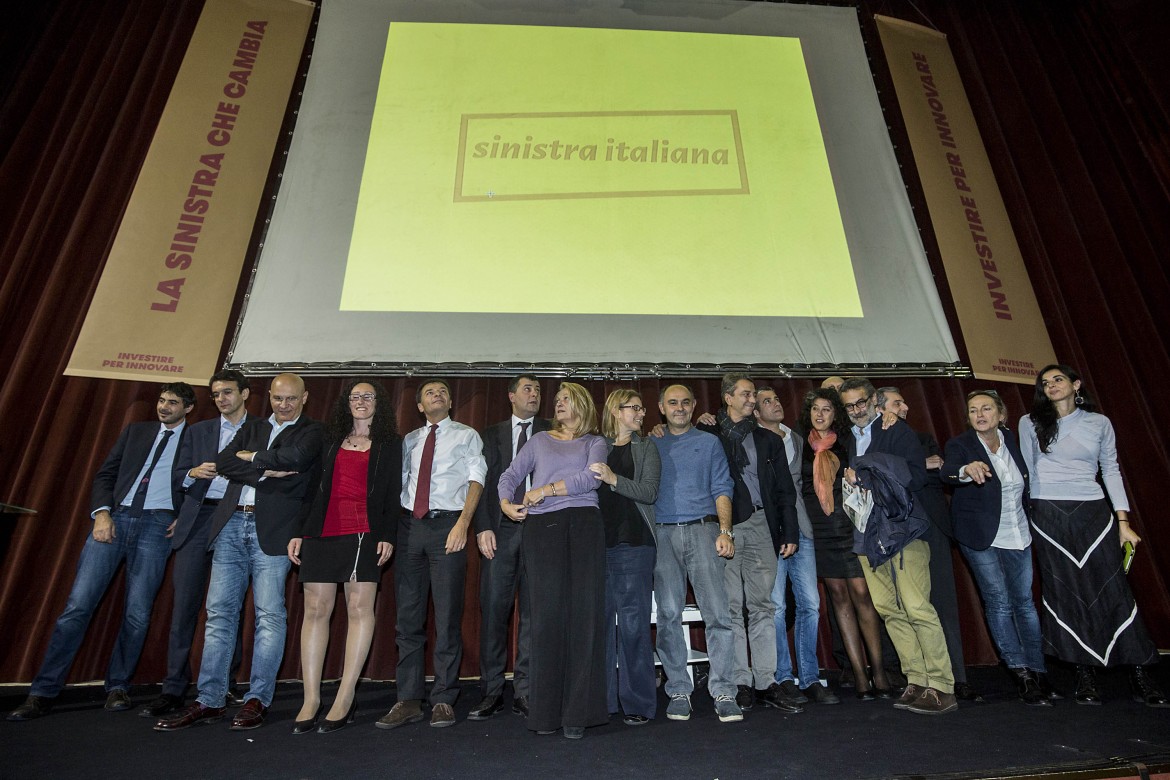Commentary.
The seeds of an Italian left
Italy’s new unified leftist coalition could be a launching pad to counter conservatism across Europe.

I like to think of the birth of this unified parliamentary group, the Italian Left, as a ribbon cutting to inaugurate the construction site of the new left.
We know we’ll find many psychological ruins — a legacy of defeats, setbacks, hardships and divisions that have created distrust and torn relationships — and objective rubble — analyses depicting a society and an economy failing to cope with globalization and financialization.
But we also know that looking around we find small houses built by individuals and groups, nuclei of a new society and a new development model, dreams and trials of another farming economy, meeting venues and practices of solidarity among human beings, of acceptance and coexistence, seeds of a new localism that wants to rebuild participation, self-management and democracy from below.
This is all part of our world, even if it isn’t how we like to define the left or policy making, as we understand it.
From those ruins, we must extract what is valid and useful, from those experiments, we must save what is generalizable, to build the new.
The task will not be easy because we’ve backtracked for several years and, above all, because lately we’ve suffered severe blows by those on the left whom we thought we knew. That affected us profoundly.
But be aware: Renzi has won the battle, not the war. He climbed a democratic party that was prepared to be climbed. He did it with a ruthlessness we were not used to, took power with a rapidity and an expansive power unprecedented in our history and exerts blackmail and threats, eliminating opponents and rewarding the neo-faithful.
Impressed by the advance of this cyclone, the media have become his megaphone. Now he boasts the fact that Italy, which remains along with Cyprus and Finland among the three European countries still with a negative GDP, is out of the crisis (though now no European country is in the red) and tries to exploit the climate of confidence.
But there is a but.
The Renzian language of bullying, which earlier seemed a nice break from the boredom of politics, now begins to tire, to appear undignified and to bring to mind the ridiculousness of the fallen Berlusconi. People are beginning to yearn for the quality statesmen and women of the past, with whom you may not share positions, but from whom you could learn.
Maybe we aren’t doomed to die “demorenziani” (democratic renziani).
From here we can and we must begin to build the new left, from the conviction that “renzismo” is not invincible.
The Italian Left is a major step for the new movement and can help us to face ourselves and Europe again.
Deep changes — migration, climate change, geopolitical rearrangement (in particular in the Mediterranean) — are giving us a chance to write our future.
But this future could also bring us back and to the right. Europe thought it had put behind these dangers through the development of social safety nets. Reducing inequality produced 30 glorious post-war years. Now the “30 glorious years” are behind us, and we are experiencing the “30 terrible years” of a counter-offensive led by the financial sector. The social democracies have little to say because they’ve been transformed into instruments and subordinate accessories.
Fortunately, where the consequences of those policies are most ferociously manifested, Greece, Spain, Portugal, the left is springing up with new solutions and unique experiences.
So while the progressive, social democratic forces stagnate and recede, hopes for the future are incarnating in new groups. They don’t always bear the mark of the left, but they bring novelty and enthusiasm, and offer radical policies of social justice.
These new forces need to be let onto the scene. We can do that, starting here and now, by not thinking about the past — realizing we won’t go back to where we were.
Instead, let’s think ambitiously: Because of our history and our geographical location, Italy could be the connecting point between the experiences of Greece, Spain, Portugal and Germany to produce, from the left, a social democratic movement and boost the construction in Europe of a broad left capable of reversing course.
Originally published at on
